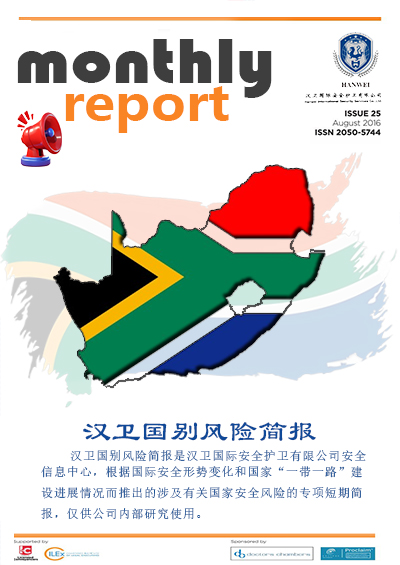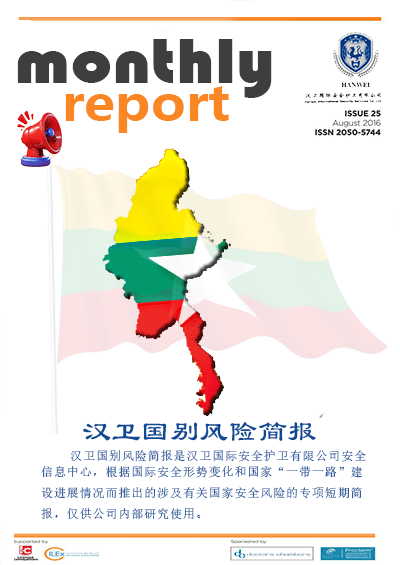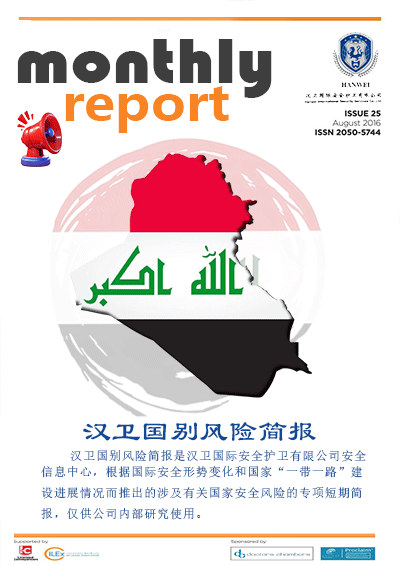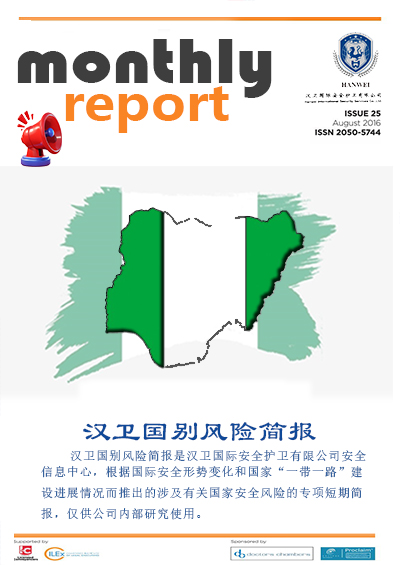Researcher No. 007
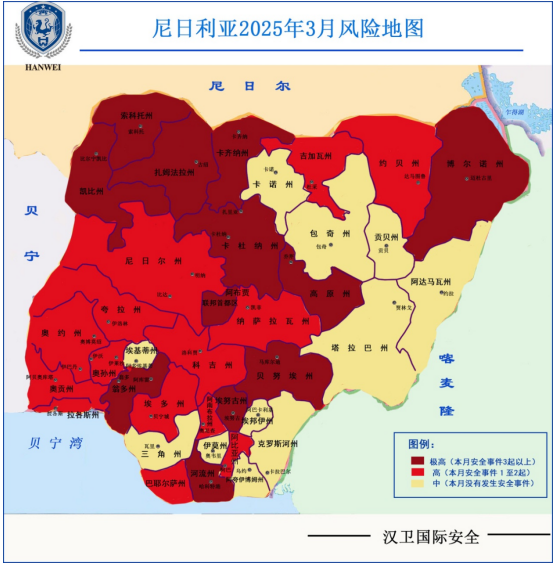
According to the monitoring report of the Security Officer of Hanwei International stationed in West Africa and comprehensive media reports, a total of 70 security incidents occurred in Nigeria in March 2025. A total of 163 civilians and 41 military and police personnel were killed in various security incidents, and at least 118 people were kidnapped. The types of security incidents mainly include armed attacks and kidnappings, conflicts between farmers and herdsmen, and public security accidents, etc. Compared with last month, the number of security incidents increased by 2, the death toll decreased by 155, and the number of kidnappings dropped by 69. Analysis suggests that Nigeria's security situation has continued to deteriorate this month. Armed attacks and kidnappings in the Midwest, central-southern and northeastern regions have remained high, reaching 52 cases, the highest in recent months. Meanwhile, the political situation in River State has been unstable and has entered a six-month state of emergency. Public safety incidents such as the epidemic have caused a large number of casualties, making the overall security situation more complex and severe. Among them, the security risk levels in the northwest, central-southern and northeastern parts of Nigeria are extremely high, while those in other areas are high or medium-high.
I. Comprehensive Analysis of Security Incidents
Among the 70 security incidents that occurred in Nigeria in March, 28 were armed attacks, accounting for 40% of the total. There were 24 cases of armed kidnapping, accounting for 34%. There were 7 public safety incidents, accounting for 10%. There were 2 armed conflicts among nomads, accounting for 2.8%. There were 2 parades, accounting for 2.8%. There were 7 military clearance operations, accounting for 10%. A total of 222 people were killed and at least 118 were kidnapped in various incidents. Among the deceased, 136 civilians and 41 military and police personnel were killed. At least 18 terrorists were killed.
The overall security situation presents the following characteristics:
(1) The security risks in the central and western regions, the central and southern regions, and the central and eastern regions are extremely high.In March, security incidents in Nigeria were mainly concentrated in Zamfarah State, Kaduna State, Kazina State, Sokoto State and Kebi State in the central and western regions, Abuja, Plateau State and Benue State in the central and southern regions, and Borno State in the central and eastern regions. There were 13 high-risk areas, the same as the previous month. Among them, the capital Abuja has the highest security risk, with 7 security incidents occurring, resulting in 14 deaths and 13 kidnappings. Especially on March 28th, a conflict between the police and the public occurred, resulting in 12 deaths, 19 injuries and 295 arrests, including one police officer. On that day, when the Shiite organization "Islamic Movement Nigeria" held a "Holy City March", conflicts broke out between the demonstrators and the military and police maintaining order, resulting in casualties. For this reason, the China Chamber of Commerce in Nigeria issued an emergency safety warning on March 28th, reminding Chinese people in Abuja to immediately stop all travel plans, avoid going to Banex Junction, Banex Plaza and the surrounding areas, stay away from the demonstrators and ensure their own safety. The US Embassy in Nigeria has also issued a security alert, reminding US citizens to pay attention to the follow-up activities of the "Islamic Movement in Nigeria". This month, the northwestern states of Sokoto and Kebi have been plagued by the new terrorist organization "Lakurawa", further deteriorating the security environment. Media reports say that compared with the traditional bandits' looting and extortion, the main attack patterns of this organization are burning villages and retaliating massacres of civilians to create social panic. Although the Nigerian government has classified the organization as a terrorist group and intensified its crackdown, it has continued to create violent incidents by taking advantage of loopholes in border management and the security vacuum in the Sahel region. In addition, Rivers State has been embroiled in political turmoil this month. On the evening of March 18th, Nigerian President Bora Tinubu declared a state of emergency in Rivers State and suspended Governor Siminarai Fubara and his deputy Ngozi Odu from their positions for six months. The background of the event was that the oil pipelines in River State were successively damaged and the state government was paralyzed. Rivers State is an important oil-producing area in Nigeria. However, in recent years, there have been frequent incidents of oil pipeline damage. Three such incidents occurred in March alone, seriously affecting oil production and exports. Meanwhile, the recent tense confrontation between the governor of Rivers State and the state legislature has paralyzed the state government. The government said that the state of emergency would enable the federal government of Nigeria to formulate regulations to manage Rivers State and deploy security forces to maintain order if necessary. Opponents, however, believe that this move is aimed at weakening the opposition party's influence in River State, and the local situation may become even more volatile. On March 18th, the Consulate General of the People's Republic of China in Lagos urgently reminded Chinese citizens and enterprises in River State to enhance safety precautions, closely monitor the local political situation, strengthen safety prevention measures, and ensure personal and property safety.
Figure 1: Distribution Diagram of Security Incidents in March

Chart 1: Statistics of Security Incidents in Major Regions in March
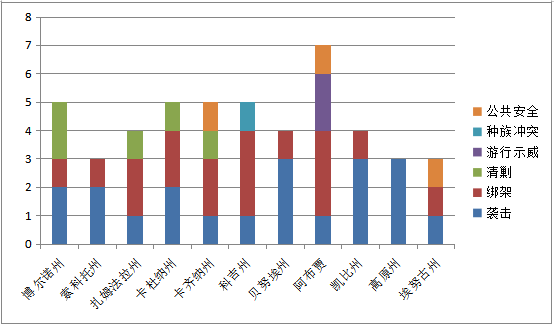
(2) Armed attacks and kidnappings continue to occur frequently.In March, which coincides with Ramadan in Nigeria, the risks of armed attacks, kidnappings and robberies soared. A total of 28 armed attacks and 24 armed kidnappings occurred this month, resulting in 165 deaths and at least 118 kidnappings. The number of incidents accounted for 74% of the total number of security incidents this month, and the death toll accounted for 80% of the total, which was much higher than that of last month. Among them, on March 2nd, suspected Fulani armed herders attacked Tse Ugema Chul Village in the Mbakesa community under the jurisdiction of the Ukum local government in Benue State, resulting in the deaths of at least six local villagers. Late at night on March 9th, suspected Fulani armed herders successively attacked four communities including Aba Alajido, Aba Sunday, Aba Pastor and Ademekun in the Akure North local government jurisdiction of Ondo State, causing at least 20 deaths and a large number of people to flee. In the early morning of March 11th, unknown gunmen attacked the village of Dnako in the Bwari district of the federal capital, Abuja, and nine local villagers, including the village head, were kidnapped. On March 16th, unidentified gunmen ambushed a commercial bus in Oloma, a local government area of Ofu, Kogi State, and kidnapped 18 passengers. On the afternoon of March 21st, armed kidnappers attacked Kurata Village in the Kasangwai community under the jurisdiction of the Kagarko local government in Kaduna State, and 12 local villagers were kidnapped. On March 22nd, armed bandits ambushed the community joint Guard on duty in the Bagega community under the jurisdiction of the Anka local government in Zamfarah State, resulting in the deaths of six community guards and four security personnel. On March 27th, a hunter tour group in the Uromi community of Udune-Evandion, a local government in the northern part of Eddo Oblast, was attacked, resulting in 16 deaths.
According to the 2025 Global Terrorism Index report released on March 6th, Nigeria has jumped from the eighth place globally two years ago to the sixth place, becoming the second largest terrorist threat country in Africa. Data shows that in 2024, Nigeria witnessed 565 terrorist attacks throughout the year, equivalent to at least 1.5 per day, with the death toll increasing by 6% compared to the previous year. The report analysis suggests that the extremist group "Islamic State Sahel Branch" has moved southward from the border between Niger and Mali and carried out 16 attacks within Nigeria in 2024, posing a new threat to the country. Next, Nigeria's oil-producing areas and lithium mining belts may become new targets of attack. To enhance anti-terrorism capabilities, the Nigerian Ministry of Defense announced on March 25 the establishment of an elite combat force code-named "Special Operations Forces" (SOF), with a focus on combating terrorists, bandits and other violent acts. The total number of the unit is 2,400. The first batch of 800 people has already started training at the Jagi Camp in Kaduna State.
(3) Incidents related to China.In March, there were four incidents involving China in Nigeria. On March 10th, the Economic and Financial Crimes Commission (EFCC) of Nigeria launched a surprise operation in Jos, the capital of Plateau State, and arrested four Chinese citizens and 27 Nigerians on suspicion of illegal mining. Eight bags of processed monazite weighing a total of one ton and valued at 4 million naira were seized on the spot. The case has now been transferred to the judicial process and will be officially prosecuted after the investigation is completed. On March 13th, the Federal High Court of Ilolin in Kwara State, Nigeria, sentenced two Chinese citizens to two years in prison for illegal mining and allowed them to choose a fine of 1 million naira. The judge also imposed a fine of one million naira on their company, Crius Chemical Nigeria Limited. The criminal was also required to pay the federal government a mining fee of 14 million naira. (3) On March 17th, three Chinese miners in Tsha-Hajiya Village, Lavun Local Government, Niger State, Nigeria, were besieged due to a traffic accident. On that day, due to heavy rain causing a road collapse, three people were driving a Toyota SUV through a rural area of Niger State when the tire burst and the vehicle lost control, hitting a 15-year-old girl. The three people attempted to settle privately with one million naira (about 2,300 US dollars), but were refused by the villagers. Then, the crowd began to smash the vehicles. After the police arrived, they rescued the Chinese personnel. The vehicle was damaged but there were no casualties. The injured girl was sent to the hospital for treatment. On March 25th, the Federal High Court of Nigeria filed charges against four Chinese citizens and one Nigerian for "fraud through false hotel reviews". The presiding judge, Aliyu Khalilu, read out the indictment in court, accusing five individuals of forging a five-star rating of the Nox Edgware Road hotel in London at a price of $5 per message through a Telegram group in Abuja in December 2024, posing as customer service representatives of "Venus Media". All five defendants denied the three charges of conspiracy to defraud in court, and the prosecution requested remanding pending trial.
It is reported that in 2024, 244 Chinese people were arrested in Nigeria. There were 14 in the first half of the year and 230 in the second half. The charges include cybercrime involving 227 people, accounting for 93%. There were 17 people engaged in illegal mining, accounting for 7%. In response to this, the Chinese Ambassador to Nigeria proposed the establishment of a working group to cooperate with the Nigerian side in combating cybercrime. On March 4th, Ambassador Yu Dunhai of the People's Republic of China to Nigeria led a delegation of Chinese embassy officials to visit the headquarters of the Economic and Financial Crimes Commission (EFCC) of Nigeria to pay a visit to its Executive chairperson, Ola Olukoyede. Ambassador Yu expressed concern over the increasing involvement of China in financial criminal activities in Nigeria and raised the possibility of the Chinese working group cooperating with the Economic and Financial Crime Commission (EFCC) of Nigeria to combat cybercrime. The Executive Chairperson of EFCC thanked the Chinese authorities for their support of the Economic and Financial Crimes Commission and called for strengthening the relationship between the two sides.
(4) Public security incidents such as the epidemic continue to occur frequently.In March, two traffic accidents, four oil pipeline or vehicle explosions and one building collapse occurred in Nigeria, resulting in a total of 24 deaths. This month, there have been multiple outbreaks of the epidemic in Nigeria. As of March 10, the Lassa fever epidemic has reported 2,960 suspected cases, 563 confirmed cases and 103 deaths in 78 local governments across 14 states. The case fatality rate (CFR) is 18.3%, slightly lower than the level of the same period in 2024. The cases found in Ogun, Bauchi, Edo, Tarabah and Ebangi accounted for 91% of the total. On March 17th, the Nigerian Centre for Disease Control released the latest report on the diphtheria epidemic. As of March 14, 2025, a total of 16 suspected cases of diphtheria, 3 confirmed cases and 1 death have been reported by 4 local governments in 2 states of Nigeria, with a fatality rate of 33.3%. On March 24th, the Nigerian Centre for Disease Control released the latest report on the cholera epidemic. As of March 1, 2025, a total of 1,149 suspected cases of cholera were reported by 66 local governments in 25 states of Nigeria, with 28 deaths. The fatality rate was 2.4%, higher than 1.4% in the same period of 2024. On March 26, the Nigerian Centre for Disease Control and Prevention stated that as of 2025, the country had recorded a total of 807 suspected cases of cerebrospinal meningitis, with 74 deaths in 22 states, resulting in a fatality rate of 9.2%. In addition, on March 11th, officials from the health department of Kebi State in northwestern Nigeria stated that the recent meningitis outbreak in the state has caused at least 26 deaths. Since the meningitis outbreak was announced at the end of January, a total of 248 suspected cases have been registered. Recently, the number of suspected cases has soared.
(V) Continuously carry out military campaigns to clear and crack down on illegal and criminal activities.In March, Nigerian security forces and police continued to carry out military sweeps in the northwest and northeast, as well as crack down on criminal activities in the central and southern regions. On March 4th, the Nigerian police raided the secret base of the "Salisu" armed group in the Kwasau Forest, killing 14 terrorists and seizing one AK-47 assault rifle, two 7.62mm live ammunition rounds and several satellite phones used for communication. The police said that after the group broke away from Boko Haram in 2012, it was loyal to the bandit leader "Dogo Gide" and had close ties with the extremist group "Ansaru", which was incorporated into the African branch of al-Qaeda. The core members consist of approximately 200 people, including former Boko Haram fighters, dismissed security personnel and unemployed youth. The main modus of the crime is highway hijacking, and kidnapping and extortion are also carried out in rural areas. In addition, on March 12th, the "Hardingkai" operation forces rescued 75 civilians from the Sanpisa Forest in Borno State. On March 21, the Nigerian Air Force launched multiple air strikes on terrorist hideouts in Chilaria, Graza, Yuwe and Zango Mountains in Borno State and Kazina State, killing several terrorists. On March 21, police in Kano State arrested 10 suspects suspected of kidnapping and armed robbery, recovering a ransom of 4,850,000 naira and a batch of firearms and ammunition.
Chart 2 Comparison of Security Incident Classifications in March
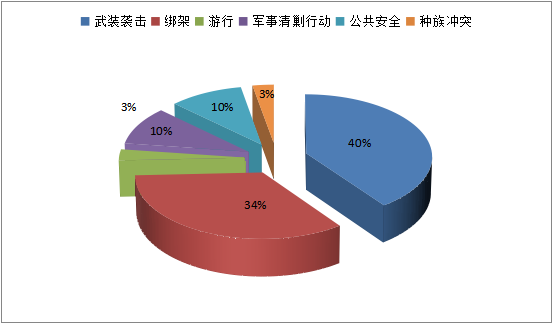
Chart 3: Classification Statistics of Deaths in March
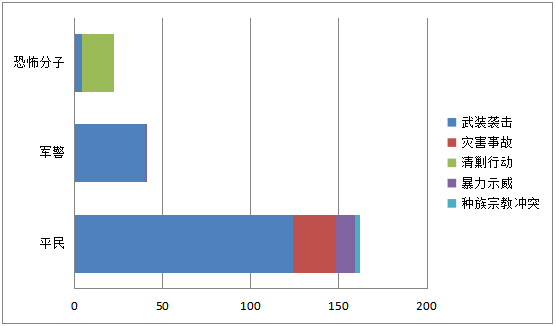
Chart 4 Comparison of the Number of major Security Incidents in March and February
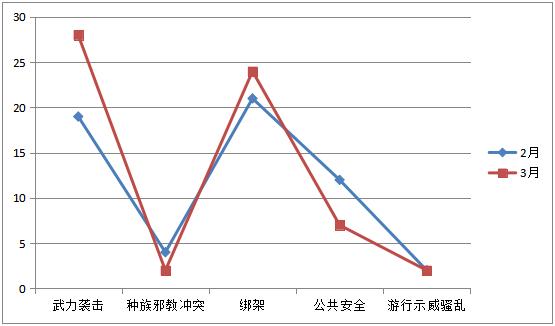
Ii. Risk Early Warning and Prevention Suggestions
图表5 尼日利亚社会安全风险近期预警
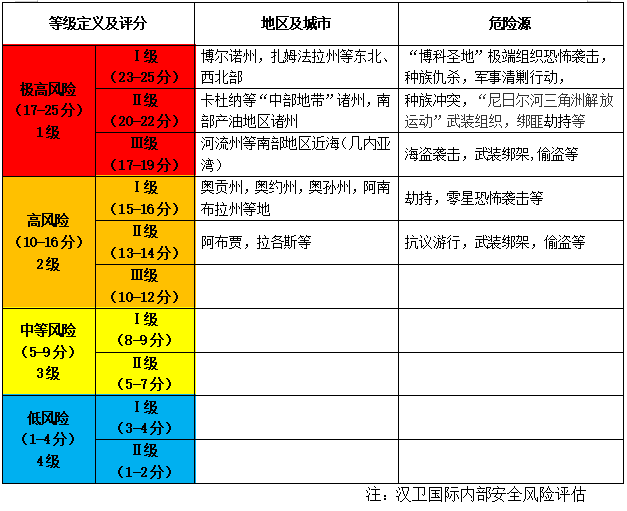
Given the complex social environment and high-risk security assessment in Nigeria, the following security measures are recommended:
The first is to provide full-time security services during travel.In remote rural areas of Nigeria, the police force is limited and the road infrastructure is poor. As a result, the response of security forces to violent crimes and riots and conflicts is often seriously delayed. Therefore, Chinese-funded enterprises and others should promptly obtain the latest local security intelligence, conduct specific security assessments of the travel destinations, and have security personnel accompany and protect them.
Second, operate in compliance with local laws and regulations.In March, multiple incidents of Chinese citizens being arrested for violating local laws occurred again in Nigeria. For this reason, it is reminded that enterprises and Chinese people in Nigeria should focus on legal operation, abide by the laws and regulations of Nigeria, and avoid getting involved in similar legal disputes and criminal cases.
Third, pay attention to flood prevention during the rainy season.According to the forecast of the Nigerian Meteorological Service, the rainy season is approaching in 2025, and preparations for flood prevention should be made. The Federal Department of Water Resources and Health will soon release the 2025 Annual Flood Outlook (AFO), including rainfall patterns, water levels and affected areas, etc. Please pay close attention. In 2024, floods claimed 465 lives and injured 2,712 people, severely affecting 180 local government areas in 31 states. The severely flood-stricken areas include Borno State, Bauchi State, Benue State, Adamava State, Kebi State, Anambra State, Lagos State, Bayelsa State, Triangle State, Niger State and Kogi State.
Fourth, effectively avoid risks.Most of the attacks in Nigeria occurred in the northeastern and central-northern parts, especially in Maiduguri in the central part of Borno State, the roads connecting other major towns, the areas bordering Niger, and Zamfarah State. Recently, security incidents have occurred frequently in Kaduna State and Abuja. In the event of a terrorist attack, one should follow the official instructions and get in touch with their specific security service provider to receive timely assistance. Video surveillance is installed at the base, shops, warehouses and residences, and facilities such as trenches, high walls, barbed wire, anti-collision barriers, buffer zones and alarm systems are set up in the camps to strengthen military and police security forces and expand the defense range. At the same time, it is necessary to avoid lingering near areas that may become targets of armed attacks, including government and security force facilities, landmark buildings and religious sites, etc. In Nigeria, it is particularly important to minimize stays in densely populated public places such as the northeastern region, religious festival sites, areas where ethnic groups live together, regions with a high incidence of crime (especially highways and areas where piracy is active in the Gulf of Guinea), oil and gas facilities, government and military camp facilities, diplomatic embassies, religious worship places, schools, markets, refugee camps, bus hubs, and surrounding areas Time.

